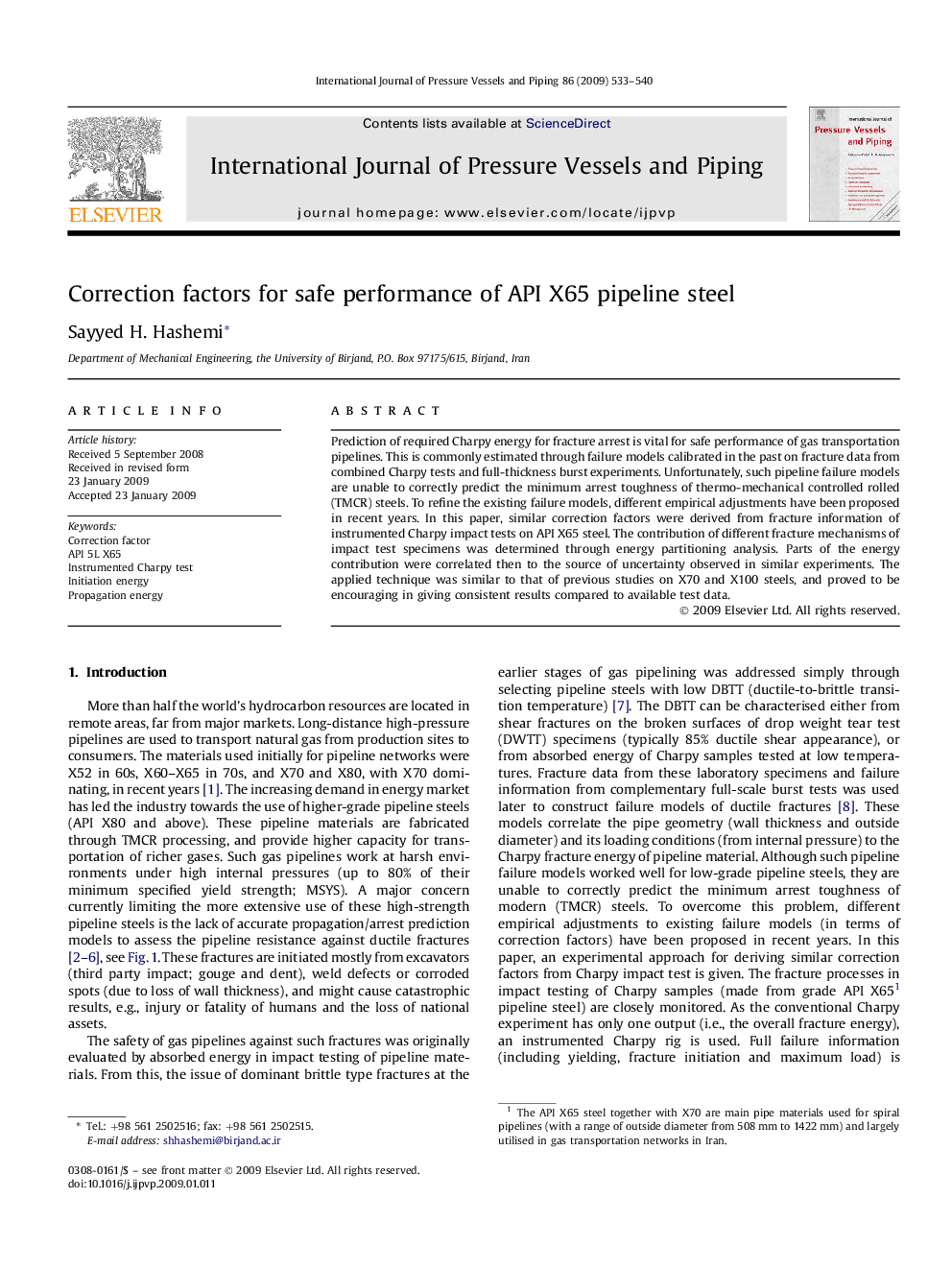| Article ID | Journal | Published Year | Pages | File Type |
|---|---|---|---|---|
| 785545 | International Journal of Pressure Vessels and Piping | 2009 | 8 Pages |
Prediction of required Charpy energy for fracture arrest is vital for safe performance of gas transportation pipelines. This is commonly estimated through failure models calibrated in the past on fracture data from combined Charpy tests and full-thickness burst experiments. Unfortunately, such pipeline failure models are unable to correctly predict the minimum arrest toughness of thermo-mechanical controlled rolled (TMCR) steels. To refine the existing failure models, different empirical adjustments have been proposed in recent years. In this paper, similar correction factors were derived from fracture information of instrumented Charpy impact tests on API X65 steel. The contribution of different fracture mechanisms of impact test specimens was determined through energy partitioning analysis. Parts of the energy contribution were correlated then to the source of uncertainty observed in similar experiments. The applied technique was similar to that of previous studies on X70 and X100 steels, and proved to be encouraging in giving consistent results compared to available test data.
